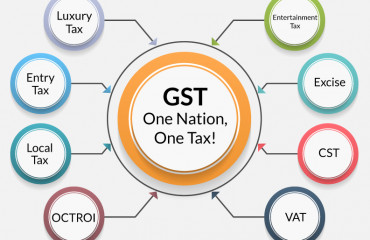
NEW DELHI : The Goods and Services Tax (GST) Council’s decision last week to tax residential units being rented out to business entities at 18% may become another source of litigation and divergent rulings under the GST regime as there is no clarity over whether companies would be allowed to claim an input tax credit for the 18% GST.
NEW DELHI : The Goods and Services Tax (GST) Council's decision last week to tax residential units being rented out to business entities at 18% may become another source of litigation and divergent rulings under the GST regime as there is no clarity over whether companies would be allowed to claim an input tax credit for the 18% GST.
So far, renting of residential premises by businesses has been exempt under GST. However, from 18 July, it will attract 18% GST, as decided by the council during its meeting in Chandigarh.
Tax experts pointed out that input tax credit should be available for companies taking residential units on rent as it is not for personal use. However, the government has not provided any clarification on this and, thus, the issue may be open to the interpretation of tax officers and advance ruling benches.
Pratik Jain, a partner at Price Waterhouse & Co LLP, said it should be clarified that businesses that take premises on rent and incur GST are eligible to claim a credit if their employees are staying there.
Queries emailed to the ministry of finance and the GST secretariat on Friday morning remained unanswered till press time.
Abhishek Jain, a tax partner at KPMG, said taxation of rented out residential property has been a vexed issue. "An upfront clarification on credit eligibility for businesses should be issued," Jain said.
The decision was part of the larger rate rationalization exercise to boost GST revenue collections with a compensation scheme for states coming to an end.
The council did away with a raft of exemptions and increased GST rates on others, besides correcting inverted duties.
Abhishek A. Rastogi, a partner at Khaitan and Co, said that any accommodation for residential purposes, whether given to an individual or to a business unit, must have the same rate of tax as the inherent nature of the service remains the same.
"Corporates using such residential units for employee dormitories and/or guest houses are toggling with the idea of the eligibility of tax credit on the same," said Rajat Mohan, senior partner, AMRG Associates.
